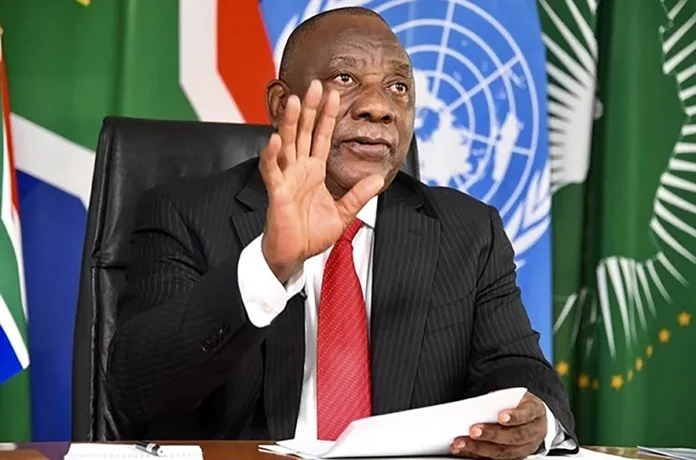President Cyril Ramaphosa will be on a charm offensive at the COP27 climate summit starting today in Egypt to raise a portion of the R1.5 trillion he says the government needs in its ambitious just transition endeavour.
Ramaphosa, who will lead South Africa’s high-level delegation to Egypt on Friday released the eagerly awaited Just Energy Transition Investment Plan (JET IP) for the initial period of five years (2023-2027).
The president said the plan recognises the essential contribution required from the private sector and the role of philanthropic capital in contributing to the financing gap and that all forms of finance are necessary to enable a sustained drive towards meeting South Africa’s targeted longer-term economic, social, and environmental outcomes.
“No one can doubt our boldness, our level of ambition or our commitment to doing our part to address the global challenge of climate change. Following the launch of the Investment Plan, an implementation plan will be developed to maintain momentum and ensure we deliver on our commitment,” Ramaphosa said.
Ramaphosa left the COP26 meeting in Glasgow, Scotland, last year upbeat after the country secured an initial amount of $8.5-billion to be mobilised over the next three to five years to support South Africa’s just transition to a low-carbon, climate-resilient future. The commitments were made by the US, UK, Germany and the European Union (EU).
Ramaphosa’s administration has made moves to ensure it is ready to mobilise domestic and international support to move to cleaner energy. In February, the president appointed experienced banker Daniel Mminele as head of the newly established Presidential Climate Finance Task Team.
In this role, Mminele will lead South Africa’s efforts to mobilise finance for a just transition. He is expected to play a crucial role at this year’s COP meetings.
However, the ANC’s policy indaba held four months ago cautioned the government the retirement of coal powered stations should be “at a pace and scale the country can afford”.
ANC head of transformation and Minister for Human Settlements Mmamoloko Kubayi said at the time that “there is a strong feeling the just transition should not compromise security of supply, but also the issue was more around concerns about communities”.
“There was also a caution to do the just transition at a pace and scale that the country can afford, but also not leaving anyone behind. There was consensus on the need to protect Eskom and make sure it comes to efficiency. Several suggestions were provided,” she said.
The issue was particularly raised by delegates from coal-rich Mpumalanga. Mpumalanga’s economy is heavily reliant on coal. There are 73 collieries in South Africa, with most (61) situated in the Mpumalanga coalfields. The ANC will meet again next month to finalise policy positions raised at its policy conference.
The World Bank Group and the Presidential Climate Commission (PCC) of South Africa this week launched the Country Climate and Development Report for SA.
The report found that “South Africa can deliver an effective response to climate risks without undermining long-term development objectives by embracing three interconnected transitions: low carbon, adaptation and just transition”.
The report further found that financing South Africa’s decarbonisation, adaptation and just transition will require strong political will to mobilise domestic and external resources and that the cost of the triple transition could reach an estimated $140-billion by 2030 or around 4.4% of South Africa’s gross domestic product per year.
For more business news from Sunday World, click here.
Follow @SundayWorldZA on Twitter and @sundayworldza on Instagram, or like our Facebook Page, Sunday World, by clicking here for the latest breaking news in South Africa. To Subscribe to Sunday World, click here



